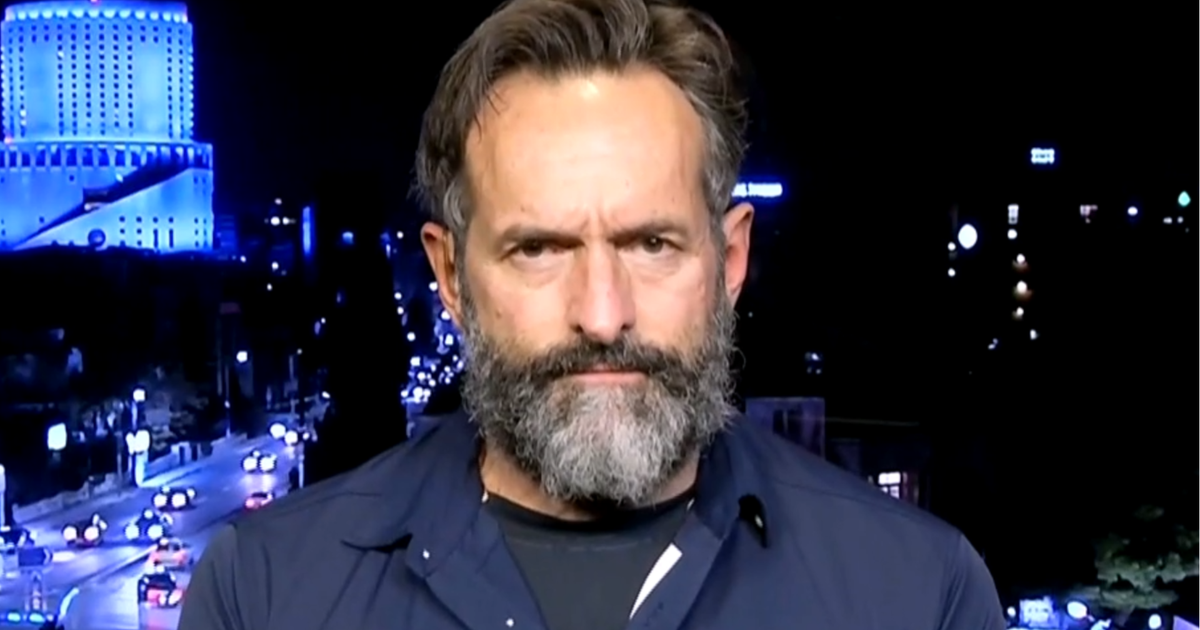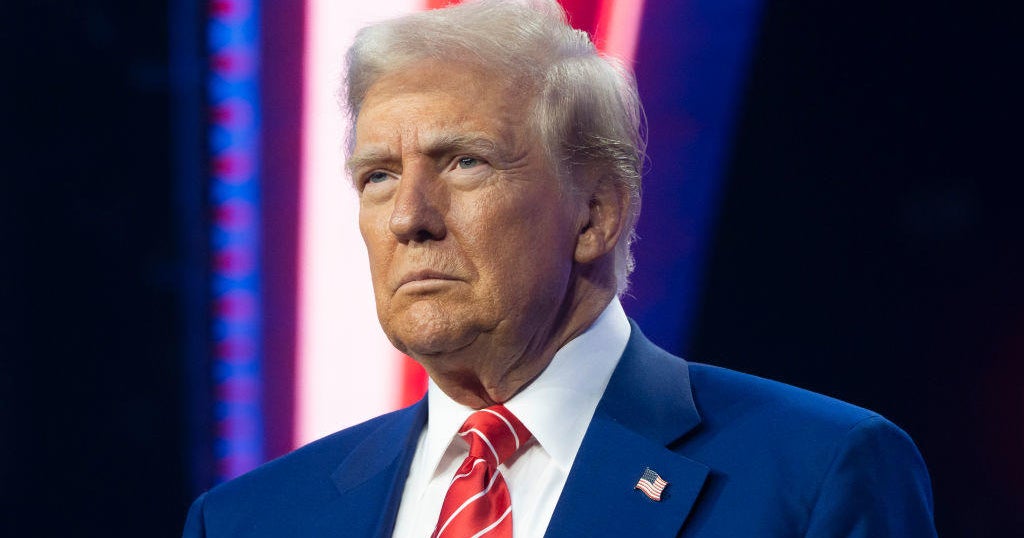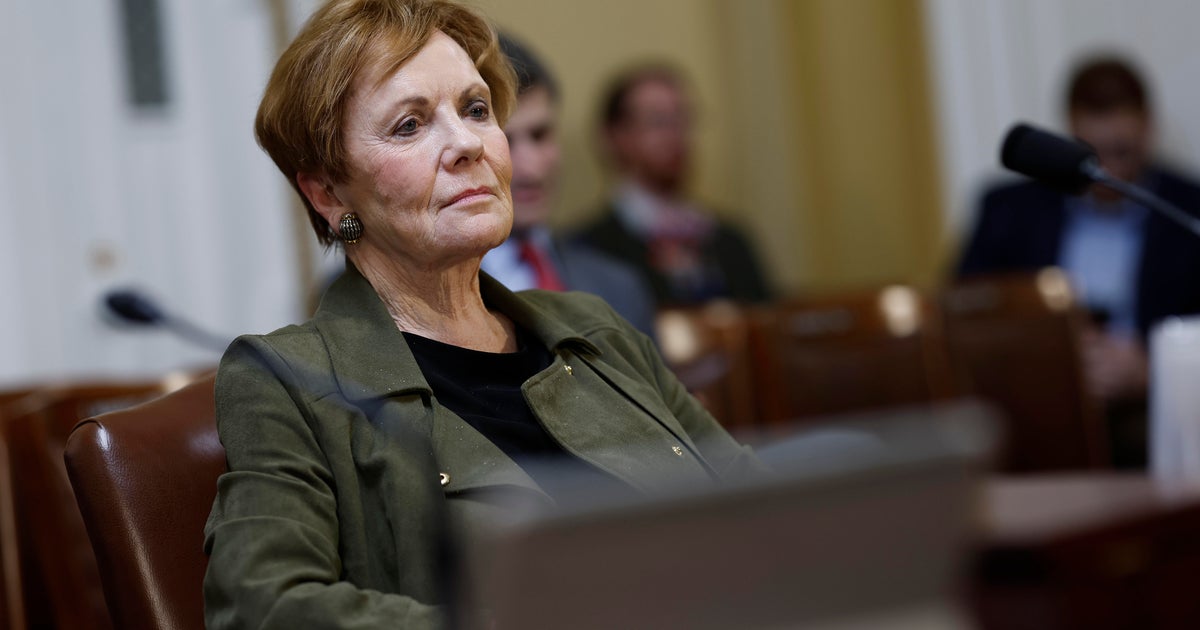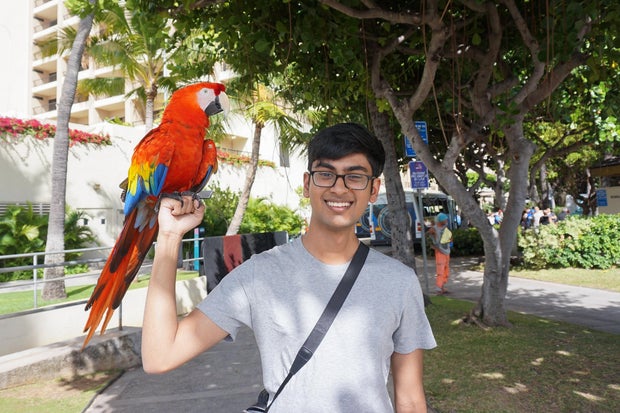CBS News
Transcript: Roger Carstens on “Face the Nation with Margaret Brennan,” Dec. 22, 2024

The following is a transcript of an interview with Roger Carstens, special presidential envoy for hostage affairs, on “Face the Nation with Margaret Brennan” that aired on Dec. 22, 2024.
MARGARET BRENNAN: Roger Carstens is the Special Presidential Envoy for Hostage Affairs, and he joins us now from Amman, Jordan. This was a high risk visit to Damascus, the first since the Assad regime fell. Why was it important to be face to face and go there?
ROGER CARSTENS, SPECIAL PRESIDENTIAL ENVOY FOR HOSTAGE AFFAIRS: Margaret, thanks for having me on today. You know, I think it was important because we’ve been in the area since about the 9th of December, shortly after Damascus fell and the Assad regime left. We flew out to Beirut, later, we restaged to Amman, and our job’s been really to cast a wide net to work with partners, allies, NGOs, and even members of the media to try to cast this wide net to search for places that we believe Austin Tice may have been held over the last 12 years. But there’s something about getting face to face with the people that have been searching and certainly something about getting face to face with the interim authorities to determine what’s seen, to what extent has it- have these sites been cleared, and to maybe find bits of information that you’re just not going to get over a phone or over email.
MARGARET BRENNAN: You told reporters that you were amazed at the number of secret prisons that Bashar al-Assad had, more than 40 of them. Have those prisons been searched yet, and do you know if journalist Austin Tice was held in them?
AMB. CARSTENS: So it’s not going to shock me to find out that there are prisons that have yet to be discovered and searched. I think obviously a lot of them have been, not only by members of the general public, but also by members of this conglomerate of people that are on the hunt and search for not only Austin Tice, but people like Majd Kamalmaz, and other Americans that have gone missing. So if another, I would say, underground prison compound’s discovered even tomorrow or three days from now or three weeks from now, at this point, I’m not gonna be shocked. I would say if I’m stunned by anything, it’s just the amount of prisons. I mean, you’d almost think that if you were running a country and you wanted to jail your enemies, you’d have one prison, and it wouldn’t be secret. But to have like 35 or 40 secret prisons, I find that just horrifying, disturbing, and yet in a way fascinating. But really the bottom line is that we have to help, and- or rather work with our interim authorities, officials, to make sure that we do a good search so that I can one day look Debra Tice in the eyes and tell them that our search been- has been exhaustive. Now in a perfect world, we’re gonna find Austin Tice. I think I’ve gone on record numerous times saying that I believe that he’s alive and he’s waiting for me to find him. And the president not long ago said that he believes Austin’s alive. Our job in the U.S. government is to keep pressing and pressing and pressing to find out Austin’s location, his disposition, his status, and to bring him home.
MARGARET BRENNAN: You’re referring to them as interim authorities. Ahmed al-Sharaa, the head of HTS, also known as Mohammad al-Jolani, was described by State Department officials as being “very pragmatic” in those meetings today, but his group and he himself are still technically designated as terrorists under U.S. law because of prior affiliation with Al Qaeda. Do you trust that they are being helpful to the U.S. now?
AMB. CARSTENS: So Margaret, I’m- I’m not one of the policy people that render some of these decisions, that’s done by people that spend years perfecting this. They’re- most of them are lawyers, and I wasn’t smart enough to get a law degree. But what I can tell you is that they’ve treated us well in terms of our search. I’ve been talking to them for, I wanna say almost, probably nine or 10 days, and they’ve been helpful in conducting the search. They were definitely helpful today. We conducted a joint search of a facility that we- we all thought would have a probable, I guess, have some sort of relation to Austin Tice. So I understand, of course their- their past. What I can tell you right- is that right now they’re being helpful in the search for Austin.
MARGARET BRENNAN: So you conducted a joint search with HTS of a prison today. Did you believe that that is where Austin was being held?
AMB. CARSTENS: You know, Margaret, we had a lot of information over the last 12 years that pointed to a variety of facilities. And in necking that down over 12 years, we came up with a priority list of about six sites and of those six sites, we felt that this had the highest probability of having held Austin at one time. But really the long- the- I guess I would say the best way to describe it is, we’re just not sure. You know, you can get information from Syria, which to an extent has been a black box in terms of gathering information on Austin, and with all the things, all the, I guess I’d say reports being overlaid, it becomes clear that some places have a higher probability than others. And this, with the time that we had in the ground, seemed to be our best shot. So we- we gave it a good, hard look. We’re gonna review all the information and evidence that we collected and hopefully render some more decisions about the probability, but really, our- our job is to just keep searching. You know, it- sometimes it takes a while to determine whether the information is valid or not. And when we g- go to the hard work of crosschecking it, but out of all the sites that we could have looked at, out of the 40 or so prisons that we’ve identified, and out of the six priority prisons, we went to the one that we felt had the highest chance of giving us some sort of evidence that Austin had been there.
MARGARET BRENNAN: The Assad intelligence ministries were known for keeping scrupulously detailed records, numbering prison- prisoners, alive and dead. Do those records still exist? Have you gone through them to look for evidence of Austin and the Virginia doctor you mentioned, Majd Kamalmaz?
AMB. CARSTENS: So we’ve had a chance to find various documents, or I would even say file folders, holding information. Again, in the joint search that we conducted with interim authorities today, we came across numerous documents. That’s gonna have to be brought back. It’s gonna have to be translated from Arabic into English. And sometimes these documents will actually have evidence on them. They may have fingerprints, they may have traces of DNA. So we’re still in the, I would say the research phase, but the bottom line is we did find some documents. We’re taking a hard look at them.
MARGARET BRENNAN: And this was a search you conducted along with special operators from JSOC?
AMB. CARSTENS: I would never go into talking about who I was with, but I will tell you this. I was with members of the FBI. The hostage recovery fusion cell holds primacy on these cases. My office SPEHA is involved because of the diplomatic angle and aspect. So today on the ground, we were working with members of the Federal Bureau of Investigation, people that are experts at looking at crime scenes, and they did a wonderful job of sweeping it, using all their skills, talents, and capabilities to bear, to- to find the right documents that might make sense to gather the evidence that they felt might give us a- more certainty. But that’s- I’ll probably just leave it at that. We were with members of the- the law enforcement community, the FBI, and I think they- they were the ones that were able to give us this good look that we otherwise would not have.
MARGARET BRENNAN: Debra Tice, Austin’s mother, sent a letter that became public to the Israeli prime minister, asking him to have his military stop bombing prisons, because she believed her son might be in one of them. Has that bombing complicated the search?
AMB. CARSTENS: I would say, to the extent that- of knowledge that I have, no. Now I may not have full- a full picture. You talked earlier about the dis- or the difference between being in Beirut and talking to people on the phones and sending texts, WhatsApp, Signal messages, or being in Amman and doing the same. When you get on the ground and get face to face, you’re able to suck in or vacuum in a lot more information. From the information that I’ve received, the bombing has not really impeded any of the search efforts for Austin. However, I would not want to be too firm about that because there are bits of information that I may not have.
MARGARET BRENNAN: This wasn’t your first trip to Damascus. I know back in 2020, you went there at the direction of then president Donald Trump- Trump, along with Kash Patel. The regime at that time never admitted to the United States that they held Austin Tice. Do you believe they were lying back then, and that the regime did have him?
AMB. CARSTENS: Well, what I can tell you is that the regime, when we talked to them in- in 2020, they issued maximalist demands. They- they asked for the world. They weren’t really giving anything. They never admitted to having Austin Tice. They never promised to give us any proof of life, POL, as we call it. They essentially asked for a lot and said, if we’re- the United States were able to deliver everything, they might be willing to have a discussion about this- this person that we’re asking about, or to discuss our interests. At that time, they wouldn’t even mention his name. So they were not- they were asking for a lot and giving pretty much nothing, and it made for the conversations very frustrating. I would say that at some point we came across information and that’s- as highlighted by President Biden and Secretary of State Tony Blinken, that led us to believe that at one point, the Syrian government truly did have Austin Tice. Did they- did they have him until the very end? That’s information we’re still trying to sort through. But at one point we- we feel very confident that the regime did detain and have Austin Tice in their custody.
MARGARET BRENNAN: And before I let you go, the family of Dr. Majd Kamalmaz was told by U.S. intelligence that their father likely died when he was in captivity. Is there a reason for them to continue to hope? Did you discover anything about him?
AMB. CARSTENS: I would say that if I were in their shoes, I would always want to press to- until I get something that’s very conclusive. And my role is- being a part of the U.S. government, my job is to pursue- pursue as rigorously as I can, the truth. And my- I would probably tell the family, and I actually have, I- I’ve met the family numerous times, I’ve been in their homes, I’ve had a chance to- to break bread with them. And I always tell them, no matter what the status is of Majd, we’re bringing him home one day. I think if I was in the family’s shoes, I’d always have a hope that he was alive. I think the U.S. government’s been firm, at least on the information that they’ve been able to provide about his status. But regardless, we’re gonna keep pursuing Majd’s case. And one day, at some point, I think we’re gonna be able to put that to rest and bring him home.
MARGARET BRENNAN: Roger Carstens. I know it’s been an extremely long day and an extremely long effort. Thank you for sharing details with us.
AMB. CARSTENS: Margaret. Thanks for having me on.
MARGARET BRENNAN: “Face the Nation” will be back in one minute. Stay with us.
CBS News
OpenAI whistleblower Suchir Balaji dead at age 26; family seeks answers as death ruled suicide

A former researcher at OpenAI was found dead inside of his California apartment last month, authorities said. Suchir Balaji, 26, had in recent months become a whistleblower against OpenAI, speaking publicly about the company’s practices and questioning whether or not they were legal.
Balaji died by suicide, the San Francisco Medical Examiner’s Office told CBS News in a statement. There was no evidence of foul play.
His body was discovered Nov. 26 inside of his apartment in San Francisco, where OpenAI is headquartered, CBS News partner BBC News reported, citing police. Officers said they performed a welfare check at Balaji’s residence after receiving a call requesting them to do so.
Balaji’s family told the Associated Press that they are planning a memorial for him, set to take place later in December at the India Community Center in Milpitas, California, near his hometown. His parents, Poornima Ramarao and Balaji Ramamurthy, told the AP that they are seeking answers about their son’s death and described him as a “happy, smart and brave young man.”
Balaji Ramamurthy / AP
“We are devastated to learn of this incredible sad news and our hearts go out to Suchir’s loved ones during this difficult time,” said a spokesperson for OpenAI in a statement to the Associated Press.
Originally from Cupertino, California, Balaji worked for four years as a researcher at OpenAI before leaving the company in August. He alleged in an October interview with The New York Times that OpenAI, an artificial intelligence organization co-founded by Tesla magnate Elon Musk, had violated United States copyright law as it developed ChatGPT, which Balaji himself helped build during his time with the company. Balaji subsequently told the Associated Press that he would “try to testify” in the strongest copyright infringement cases against his former employer.
OpenAI now faces a group of lawsuits brought by various news publishers across the U.S. and Canada as well as some individuals — including The New York Times and the authors John Grisham and Jodie Picoult — accusing OpenAI of illegally using their intellectual property to train the online chatbot. Although Musk was originally a co-founder of OpenAI, he engaged in a monthslong attack against the company, most recently claiming in a lawsuit that its conversion to a for-profit company is “illegal.”
John Schulman, who also co-founded OpenAI and announced his own departure from the company in August, shared a tribute to Balaji after his death in a statement that Balaji’s father posted on social media.
In it, Schulman said he was “heartbroken to hear of Suchir’s passing” and called Balaji “one of my favorite and most talented collaborators.”
CBS News contacted OpenAI but did not receive an immediate response.
If you or someone you know is in emotional distress or a suicidal crisis, you can reach the 988 Suicide & Crisis Lifeline by calling or texting 988. You can also chat with the 988 Suicide & Crisis Lifeline here.
For more information about mental health care resources and support, The National Alliance on Mental Illness HelpLine can be reached Monday through Friday, 10 a.m.–10 p.m. ET, at 1-800-950-NAMI (6264) or email info@nami.org.
CBS News
Trump tapping several who served in first administration for National Security Council roles

President-elect Donald Trump is filling out his National Security Council with several officials who served in his first administration.
Brian McCormack, a longtime energy consultant, and Andrew Peek, a seasoned Middle East adviser, will take senior roles on Trump’s White House National Security Council, according to people familiar with the matter, signaling a focus on Iran and on beefing up domestic energy production.
The National Security Council is an advisory body made up of regional and subject-matter experts who help coordinate domestic and foreign policy.
The NSC’s executive secretary will be Catherine Keller, according to multiple people familiar with the new hires. Keller was a deputy general counsel at the Commerce Department and deputy White House staff secretary in Trump’s first term.
Trump named Florida Republican Congressman Mike Waltz as his national security adviser less than a week after the election. Waltz’s congressional chief of staff, Micah Ketchel, will be senior adviser and a special assistant to the president, one of the sources said. Ketchel previously worked for the Republican Attorneys General Association and at the National Republican Congressional Committee.
Peek is Waltz’s congressional national security adviser and a former Army intelligence officer. In Trump’s first term, Peek was a deputy assistant secretary of state for Iraq and Iran and then became the NSC’s senior director for Europe. He was removed from the NSC after just three months during a security investigation in 2020. The allegations were unfounded, one of the sources said, and Peek never lost his security clearance. He has a PhD in Russian and Iranian proxy warfare.
McCormack is known for having a deep understanding of energy policy after working as a top aide in the Energy Department for then-Secretary Rick Perry and later at the Office of Management and Budget. He co-founded an organization that champions nuclear power, including for military purposes.
McCormack was among several aides who declined to participate in the U.S. House hearings on Ukraine during the 2019 impeachment against Trump. Early in his career, McCormack was an aide to Vice President Dick Cheney and was in the West Wing on Sept. 11, 2001.
One of Trump’s transition team spokespeople, Brian Hughes, will be deputy national security adviser for strategic communications, according to sources. And James Hewitt, Waltz’s congressional communications director, will serve in a communications role at Trump’s new NSC.
In a statement in November, the president-elect said Alex Wong, a longtime Asia adviser, will be deputy national security adviser, and Sebastian Gorka will be the NSC’s senior director for counterterrorism.
Seats on the NSC often turn over with a new president. President Joe Biden’s NSC has more than 300 people after Trump worked to shrink the group during his first term.
CBS News
Rep. Kay Granger confirms she has “unforeseen health challenges” but denies report she is in Memory Care

The congressional office of Republican Rep. Kay Granger of Texas denied she is in a memory care assisted living facility after a report in the right-wing news outlet Dallas Express said she has not been in Washington in months and that she had been found at Tradition-Clearfork in Fort Worth, which offers assisted living and memory care, in addition to independent living for seniors.
Tradition-Clearfork on Sunday declined to comment, but Granger’s son confirmed to the Dallas Morning News that she was a resident. However, he said that she’s in the independent living wing, not the memory care wing of the facility.
He also acknowledged that his mother was “having some dementia issues late in the year.”
Granger, who has represented the 12th Congressional District since 1997, announced in late 2023 she would not run for reelection and abruptly stepped down from her post as chair of the powerful House Appropriations Committee in late March. She cast her last vote in Congress in July.
She will be succeeded by Craig Goldman when the new Congress is sworn in on Jan. 3, 2025.
Anna Moneymaker / Getty Images
On Sunday, her office released a statement saying, “Kay Granger is not in Memory Care,” and issued a statement from the congresswoman, who said, “As many of my family, friends, and colleagues have known, I have been navigating some unforeseen health challenges over the past year.”
She said that since early September, her “health challenges have progressed making frequent travel to Washington both difficult and unpredictable.”
Granger, 81, acknowledged that she returned to Washington in November for some meetings, thanked her staff and oversaw the closure of her congressional office.
At that time, the House Appropriations Committee honored her, unveiling her portrait in a ceremony on Nov. 19. However, although the House voted that day, she did not participate.
Rep. Tony Gonzales, another Republican in the Texas delegation, told “Face the Nation” moderator Margaret Brennan on Sunday that he was not aware of Granger’s health status before the latest reports emerged from Dallas.
“I think there’s no doubt a lot of us knew that she was gaining an age, like a lot of members do. And sadly, you know, some of these members wait until things have gone too far,” said Gonzales. The congressman told Brennan he was not sure of the extent to which House leaders understood the situation.
“I’m not too sure what leadership knew on it or didn’t know on it,” he continued. “I think this goes…gets back to the root of it. Congress should do its job, and if you can’t do your job, maybe you shouldn’t be there.”



